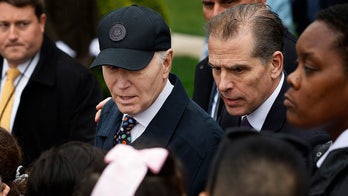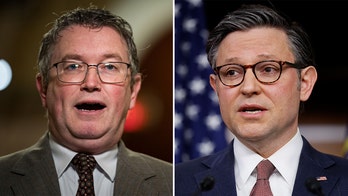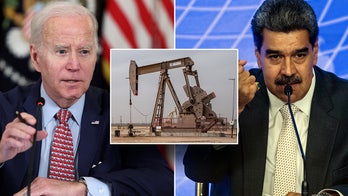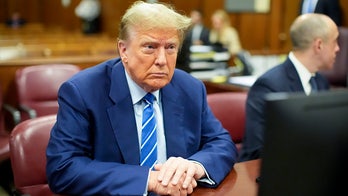The bank fees President Obama will propose in his 2011 budget will not seek to raise $120 billion, as has been reported, and will be targeted toward large banks and their risk-oriented transactions, a senior administration official told Fox News on Tuesday.
The official, who spoke on the condition of anonymity, said Obama's budget definitely will propose new fees but the amount of money they will try to raise is uncertain because staff at the Treasury Department and the Office of Management and Budget are still calculating the likely 10-year returns.
The official said the fees will not reach $100 billion, but more likely an amount in the high tens of billions.
The Obama administration has already rejected imposing a straight fee on bank transactions for ordinary customers. It has also ruled out levies on executive compensation.
In the first case, officials determined consumers would have the transaction tax passed directly onto them. In the second case, the administration determined big banks could re-jigger compensation packages to avoid any new tax, depriving Treasury of revenue and doing nothing to penalize sizable compensation packages or bonuses.
The most likely scenario, the official said, is a tax on transactions larger investments banks make to increase their profits through the use of derivatives or other products.
"Think of this as a tax on risk-taking by big banks," the official said. "In the bailout the taxpayers back-stopped banks and those banks paid nothing for that guarantee. They lived off that guarantee."
The administration's goal is to impose a fee on the risk-oriented transactions in ways that would neither affect smaller banks or discourage bigger banks from lending.
"Mom and pop banks pay for FDIC (Federal Deposit Insurance Corporation) insurance. That's valuable to their customers and that is priced into their business model," the official said.
The tax on high-risk transactions, the administration will argue, is a means to raise funds to replenish unpaid Troubled Asset Relief Program funds. Current administration figures point to $120 billion in unpaid TARP funds, but the official said the real figure is now $117 billion and likely to fall even more as banks repay TARP loans.
The official said the program may well receive repayments from loans made to automakers.




